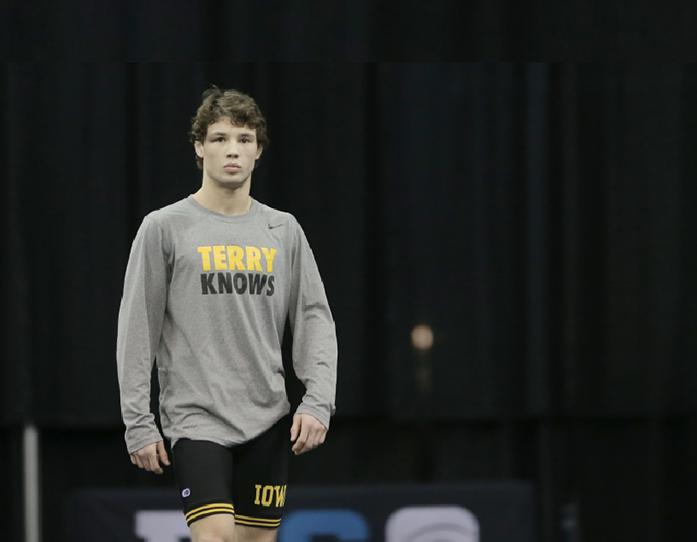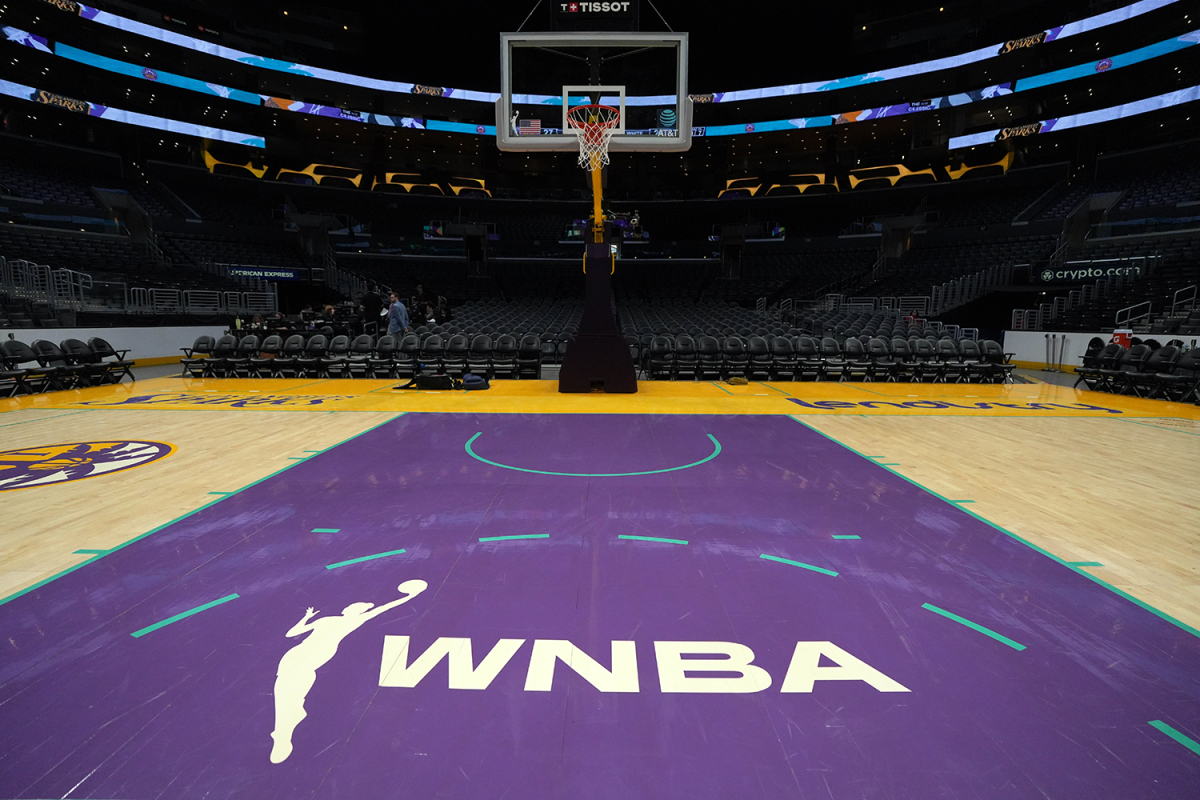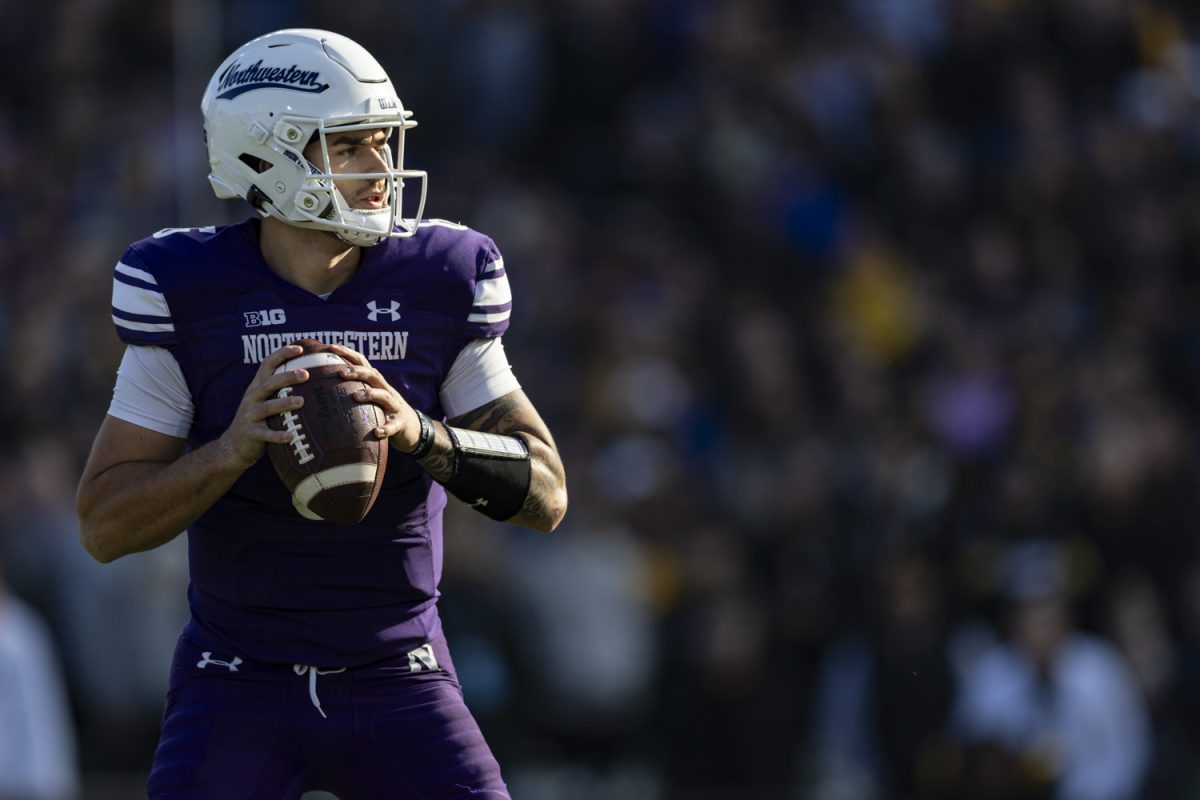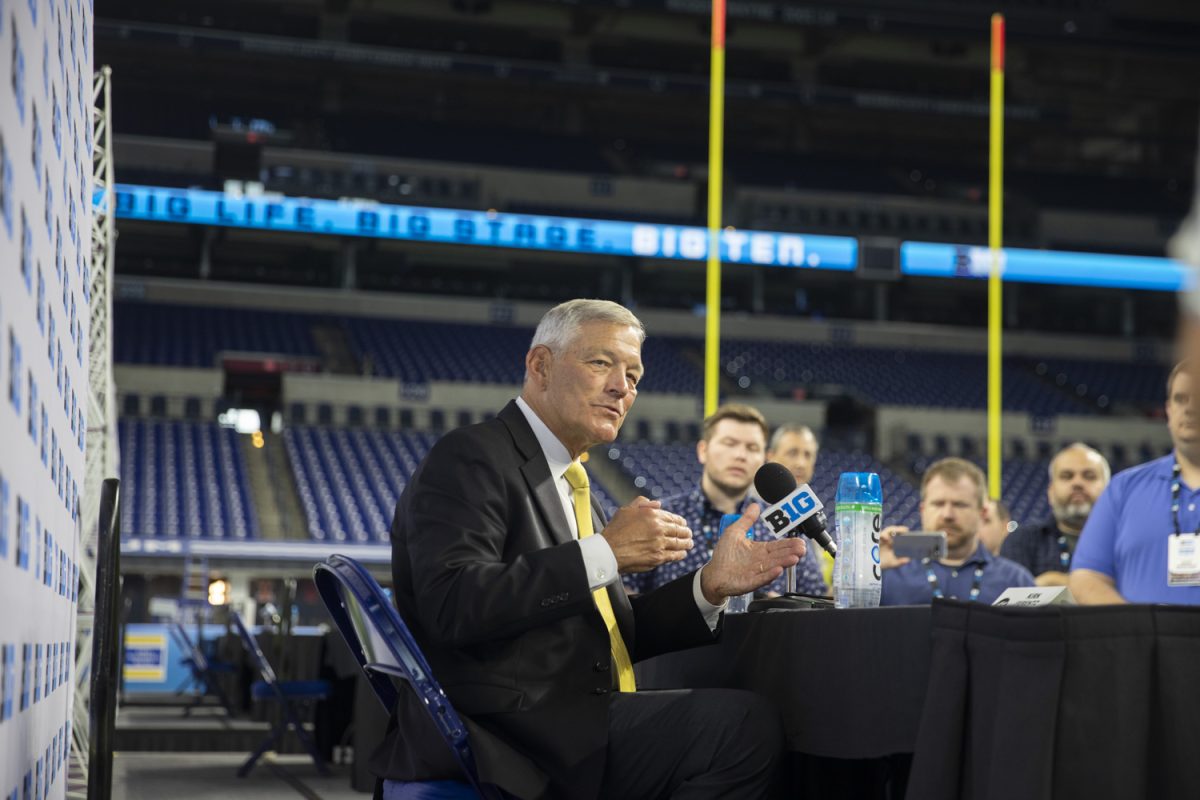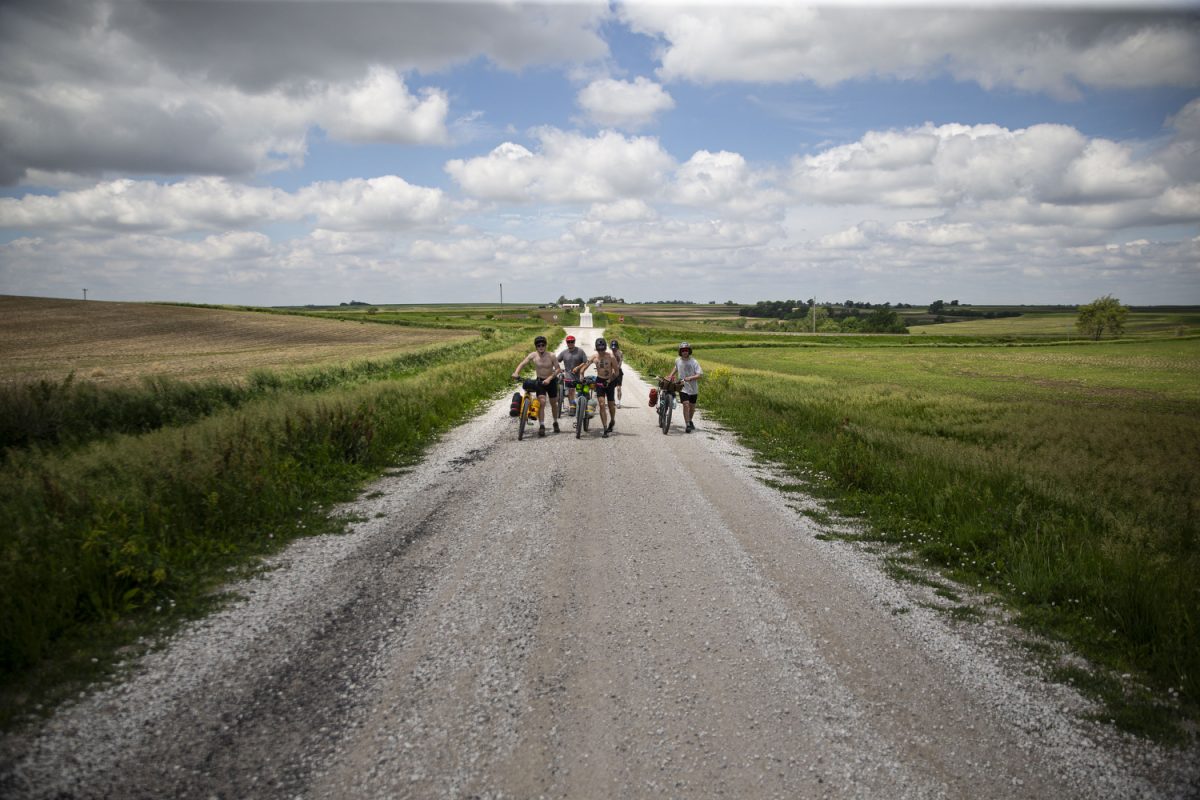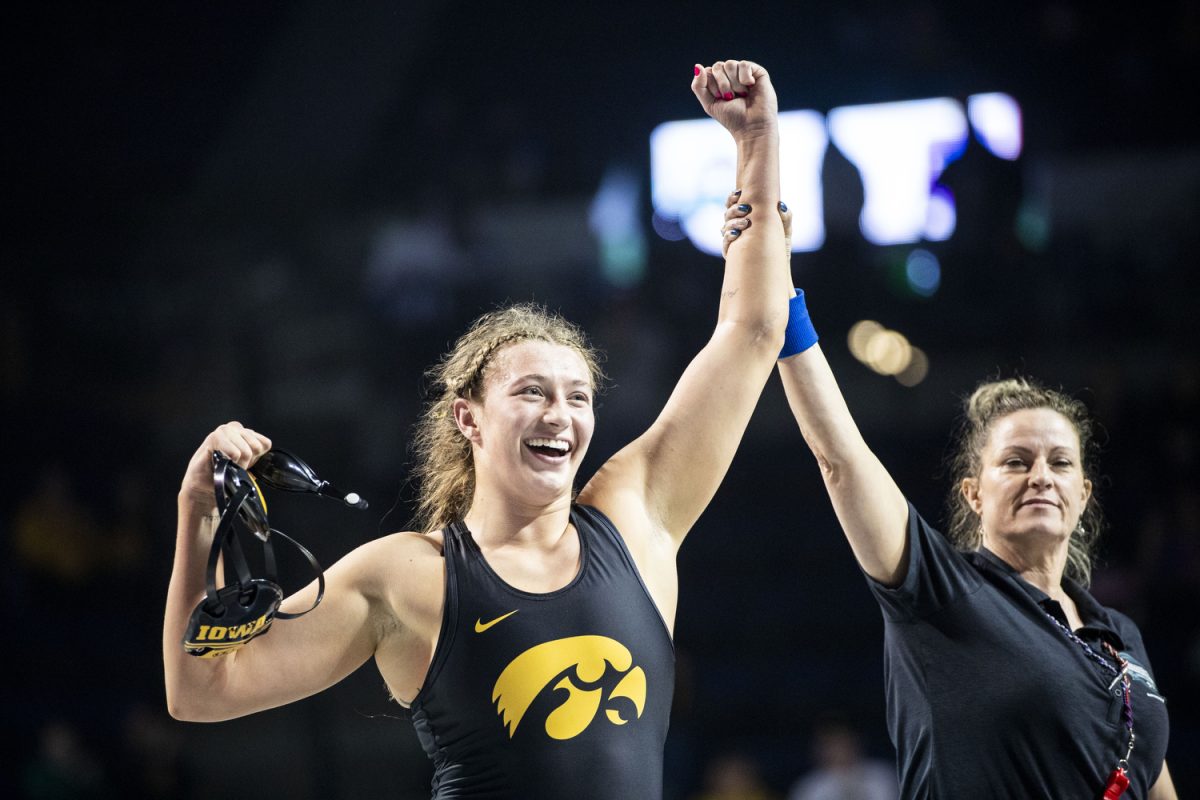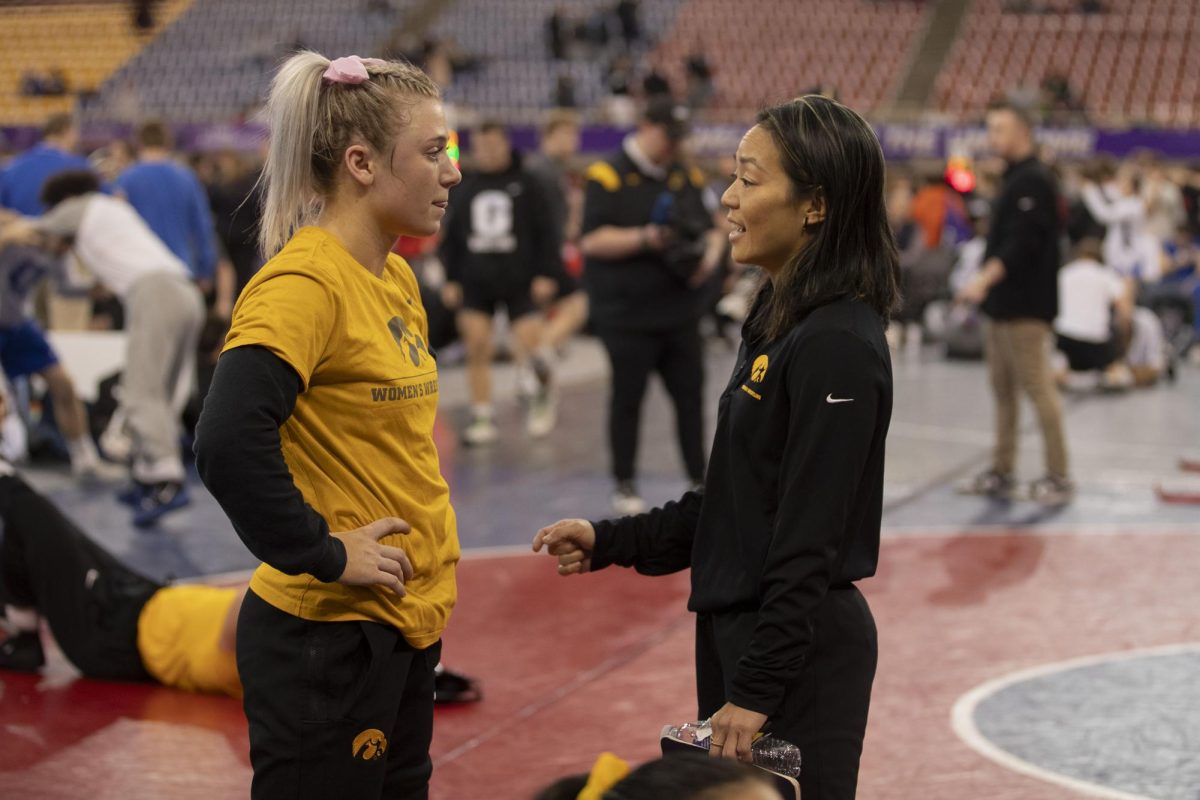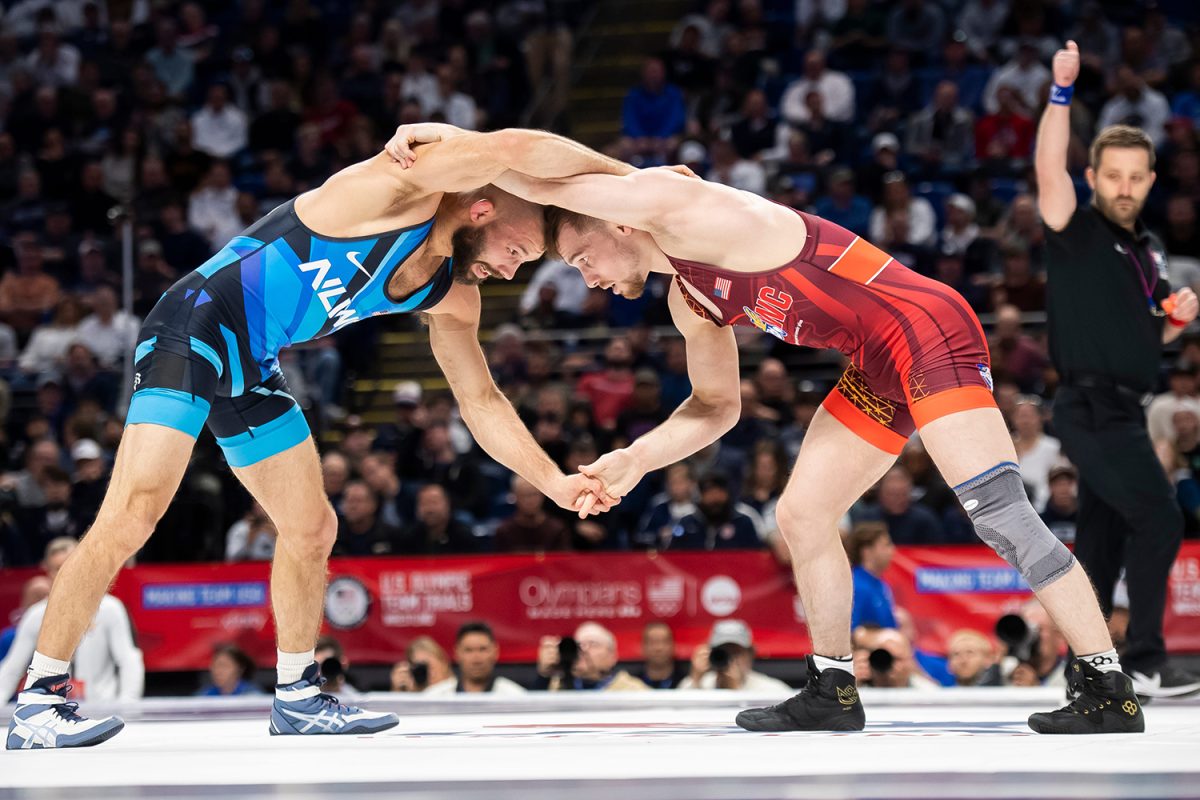By Courtney Baumann | [email protected]
Thomas Gilman and Terry Brands are similar people. Just don’t tell them that.
In fact, don’t try to compare them to anyone at all.
Side-by-side, the two don’t look a whole lot alike, except for their stature. Brands is an inch shorter than Gilman, but they’re about the same weight. Actually, they would make a good matchup — Brands wrestled at 126 when he attended Iowa, and Gilman is the team’s current 125-pounder.
Aside from the physical aspect, Gilman and Brands have mannerisms similar to each other. It is not unlikely to see either standing with legs slightly apart, hands on hips. Both have a firm grasp when shaking hands and will look you straight in the eye until you look away.
It’s not that they don’t notice their similarities — they do — but neither Gilman nor Brands, Iowa’s wrestling associate head coach, has ever compared himself with another person.
Instead, Brands rewrote the history books, which is exactly what his coach, Dan Gable, told him to do.
And Gilman is trying to do the same.
…
Gilman was an ornery child. He loved working and always wanted something to do with his hands. Hanging out on his grandparents’ farm was the perfect fit.
He did the jobs everyone else put off. He patched roofs, busted up concrete, and mended fences.
When he wasn’t on the farm, he wanted to wrestle. His father, Patrick, wrestled when he was younger and introduced his son to the sport when Thomas was 5.
After that experience, Gilman was hooked. Patrick said he never missed a practice.
One of Gilman’s coaches, Lou Mastey, said early on Gilman would be an Olympian someday.
…
In fifth grade, Terry and Tom Brands helped out on the farm of a family friend when he decided to teach the twin boys some wrestling moves. He showed them a cradle and a crossface, and he told the boys he would see them next week.
The two were quickly absorbed by the sport. The Brands brothers had lots of energy, and wrestling was a release. It was an acceptable way for them to fight in the basement without getting yelled at by their mother.
…
Gilman had his eye on Iowa wrestling long before the program had its eye on him. He saw the success that came out of Iowa City. He knew being a Hawkeye was the first step toward his Olympic dreams.
The Brands brothers, his two favorite wrestlers, were an added bonus.
To improve, Gilman watched film of how his future coaches wrestled.
“They would just beat guys up, and I wanted to be like that,” Gilman said. “Growing up in Iowa, you would hear a lot about Tom and Terry Brands and how you have to wrestle hard, wrestle Iowa-style.”
His recruitment process started his junior year of high school. He attended a wrestling camp at the University of Iowa. He met the Brands brothers for the first time.
As Gilman hoped, he impressed them. He caught their eye by winning his third- and fourth-straight state high-school titles at Skutt Catholic in Omaha.
…
Brands knew right away he wanted to be an Olympian. After researching what he had to do, he knew the place to be was Iowa. Specifically, he knew the place to be was under the helm of Gable, an Olympic champion himself, coached 12 Hawkeye Olympians and two U.S. Olympic teams before Brands arrived on campus.
After years of looking up to Gable, Brands finally met him at a camp his junior year of high school.
“I remember shaking his hand and wondering if he really gave a crap, if he really cared,” Brands said. “I just wondered why he wanted to shake my hand, but I knew I was going to be one of Gable’s guys someday.”
The recruiting process started shortly after. Both Brands brothers came to visit Iowa a couple of times. Gable later visited them in their hometown of Sheldon, Iowa.
There was no early signing at that time in the mid-80s. Rather than committing to a school in November, athletes waited until April to officially announce which university they would attend.
It just so happened this occurred after the high-school state tournament, where Gable watched Brands lose in the championship. After the match, Gable talked to Brands. Unable to think of anything else to say to his prospective coach, all Brands could mutter was, “Losing sucks.”
Gable still brings it up to this day.
…
It may sound dramatic, but to Gilman, winning and losing is as serious as life and death. When he’s out on the mat, he has to win, because he has to survive.
Gilman reads a lot of history books and gets his mindset from the way those who have engaged in battle act. Often, he likens himself to a Navy SEAL; SEALs have no option but to keep fighting. It doesn’t matter whether they fall off the mountain, break limbs, or get shot numerous times; they’re not going to give up and die. Every time Gilman starts to feel sore, hurt, sorry for himself, or anything else, he thinks of that Navy SEAL — because his only option is to win.
Death is not the only thing that concerns him. He believes that losing causes his family to be disappointed in him, to love him less.
“It kind of makes me feel bad,” Patrick Gilman said. “As a family, we’re competitive by nature, so it must come from that.”
He grew up in a family that does not like to lose. They don’t believe in the “You-gave-it-your-best-shot” ideology. They believe in winning. He believes he wins because they expect him to win.
It’s a self-fulfilling prophecy for Gilman.
“If you think it’s one way, it’s going to be that way. I think my family wants me to succeed, and I’m going to succeed because of that,” Gilman said. “I can’t think that it’s OK to lose because I can go home and my family will still love me. I have to think that I’m going home and they won’t love me as much if I don’t win.”
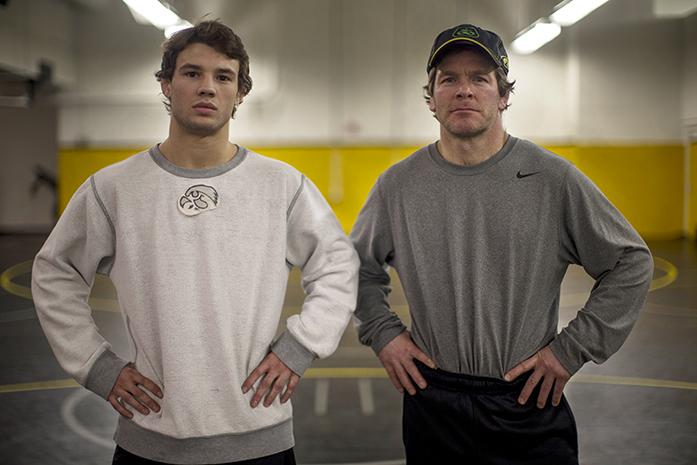
…
When Brands got out on the mat, he knew he would win. He was confident but not overconfident. He knew where to draw the line.
Just as Gilman believes his options are “fight or flight,” so does Brands.
He was nervous right before the match, but he knew that as soon as the whistle blew those nerves would evaporate. Brands goes to the Bible for the anecdotes he uses to keep fighting. He believes the nerves present his matches were what propelled him to excellence.
Brands lost seven times during his college career. He distinctly remembers each loss. Those seven, which may seem miniscule compared with his 137 wins, are “a lot of seven” to him. Each one, he said, was lost because of something correctible — whether it was psychological, physical, or because of poor technique or position.
Three of those losses came his redshirt freshman year, all to 1989 All-Americans, two to Jack Griffin, an NCAA champion, and one to Zeke Jones, the 1992 Olympic silver medalist.
Two more came his redshirt sophomore year, again to decorated wrestlers, All-American Gary McCall and 1989 NCAA champion Kendall Cross.
The last two losses of his college campaign were the next year. The first was to Ken Chertow, who was training with New York AC, and the second was in the NCAA title match to Jason Kelber.
No matter the outcome, the thought that he should have worked harder never once crossed his mind. He knew his heart was pure, he knew he was living the life that he needed to live, and he knew he did his best.
“I never had that problem of saying, ‘I wish I would’ve worked harder,’ ” Brands said. “I don’t have any regrets with any of my losses that way. None, because no stone went unturned when I competed.”
…
Although winning is everything to Gilman, the awards that come with it have never held much meaning. When he was younger, he would give his brother, Joseph, trophies he won in exchange for 10 minutes of wrestling at home.
It all has to do with his refusal to look back. To Gilman, four state titles, numerous national tournament wins, an All-American award in college, and a bronze medal from the Junior World Championships only remind him of past failures.
“I don’t need negative reminders of how bad I’ve done,” Gilman said. “I look at them, and I don’t see anything that’s first place. I don’t need the negative reminder, and I don’t need to get complacent. I’m never satisfied and always looking forward.”
Gilman recently took third at the 2016 Big Ten Championships, but he wants to win a national title. He has made it clear by calling out Nathan Tomasello of Ohio State and Nico Megaludis of Penn State, whom he lost to in the semifinals. He told reporters after his National Duals match that they better be ready for him, because he is a new man.
Even if he wins a national title this year, the celebration would not last long. After all, he still has another season left and the next national championships will be less than a year away. He’d shove the award away somewhere in a closet or give it to his parents, he said.
Depending on how far along he is in his career, an Olympic gold would be a similar story. If he still has years to go, he sure as hell won’t keep that award out to look at, because he still has work to do.
…
Brands can’t remember where he placed his bronze medal from the 2000 Olympics in Sydney.
A few of his awards are in his basement — the ones he gave away to his parents or other relatives who gave them back to his wife in the hopes that he would one day take them out of the boxes. Others might be scattered throughout various museums. His championship belt is probably tucked away in a drawer somewhere.
To him, they’re inconsequential.
“The gold, the medal, the hardware, it’s all irrelevant. It doesn’t mean anything,” Brands said. “When it’s fresh on your mind, and you have that world championship belt on, and you’re taking it off, it’s heavy, it’s substance. But after that, you move on.”
Right now, he’s looking for those awards to go to his wrestlers. He wants 10 individual titles for the Hawkeyes, and he wants gold medals for his wrestlers heading to Rio this summer for the Olympics.
…
One of the many things that make Gilman an interesting post-match interview are his historical references. He has been known to quote Napoleon and talk about how he used psychological warfare tactics against his opponents.
He enjoys history, but Gilman is not sure why he chose the subject for his major. School takes a back seat to wrestling anyway, but like everything else, he does it as well as he possibly can.
Gilman looks to historical figures who were leaders in their time, because he wants to be a leader during his time. Among his favorites is Napoleon, whom Gilman relates to in more than one way.
“He was a small guy, I’m a small guy,” Gilman said. “He took over the world, and I’m trying to take over the world.
“Who says you can’t do it just because?”
…
Gilman has become the team’s leader, a role he has embraced. The other athletes look to him as an example of what they should strive to be — a self-driven, hard worker who controls what is controllable.
“I look at the example Gilman sets every match,” teammate and Big Ten champion Sammy Brooks said. “He comes out like a freaking bat out of hell and just completely takes a match to where he wants it to go. He doesn’t give a guy anything, and he’s a great example.”
Brands describes his relationship with Gilman as “coach-athlete,” but the two have a special connection.
Subtleties in Brands’ demeanor mean separate things, but Gilman knows the differences. He knows when he is being held accountable for something that went wrong, but he also knows when he did a good job.
Nowadays, there is not much dialogue between the two. Just a of couple words, such as “seven minutes,” meaning the amount of time in a match, or “two hours,” the length of a practice, are enough to get the point across.
“When we do this,” Brands said, as he pointed at both of his eyes, “We see each other’s souls. He knows what I’m thinking.
“And I know he knows what I’m thinking, and I don’t need to say it.”




